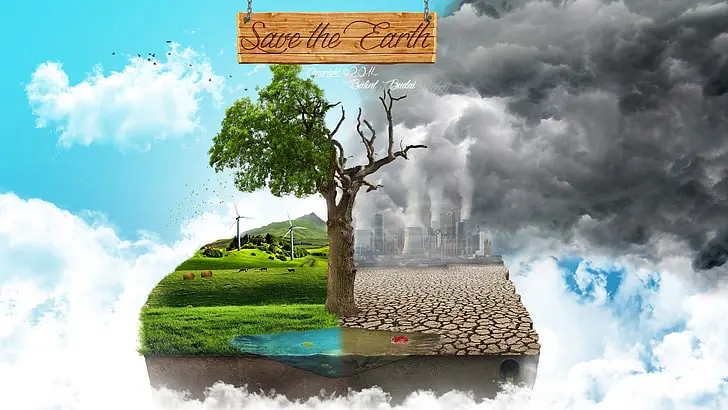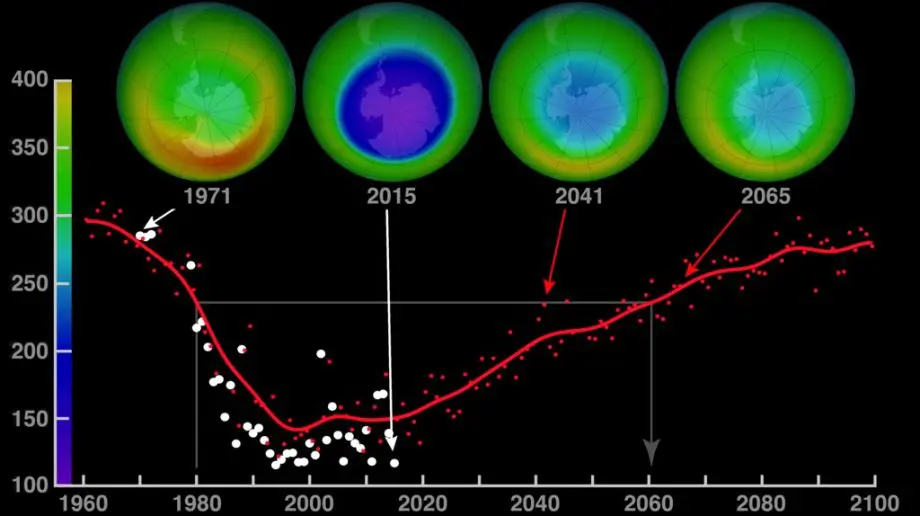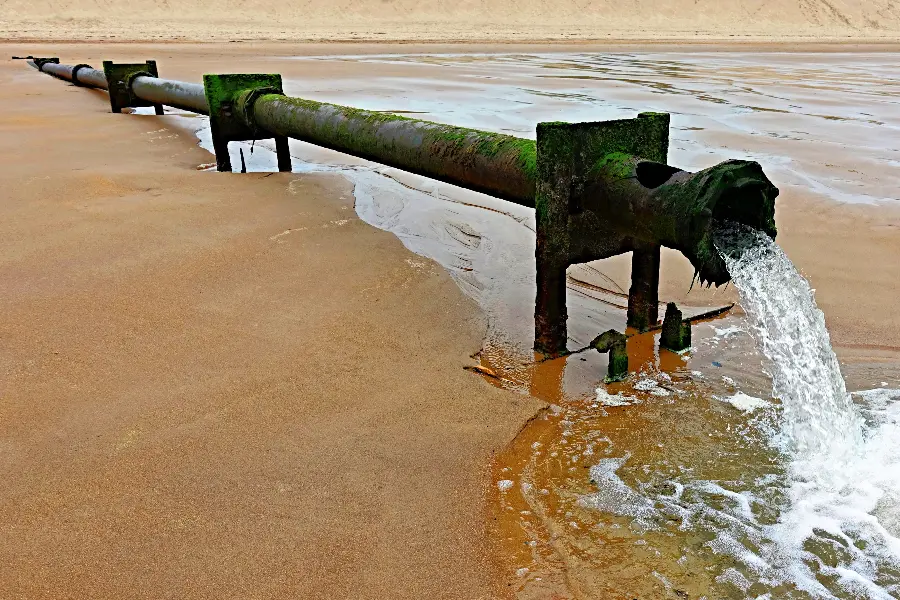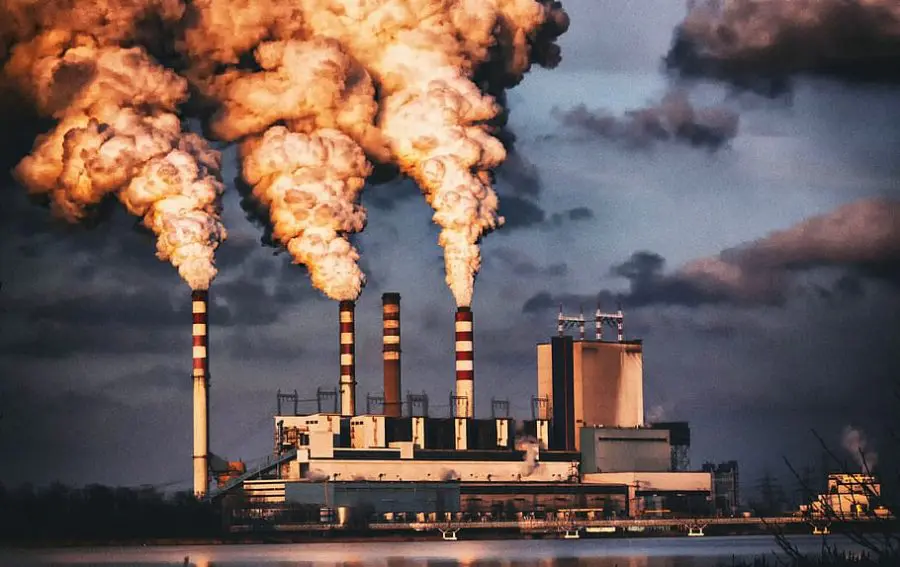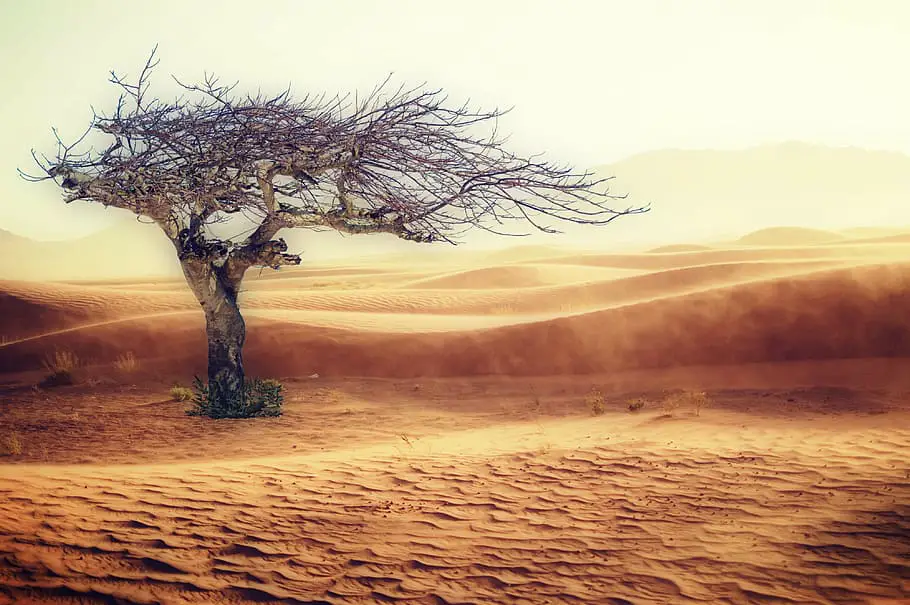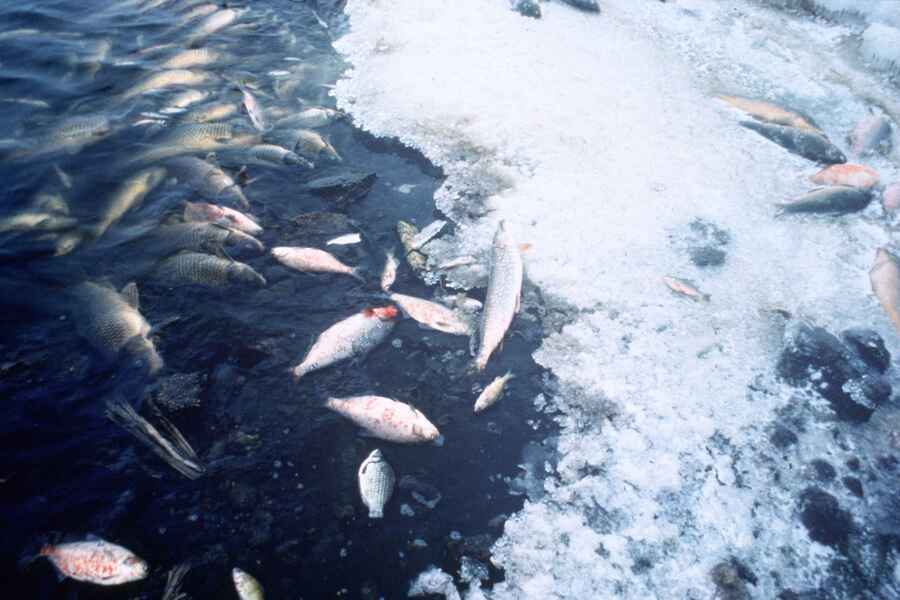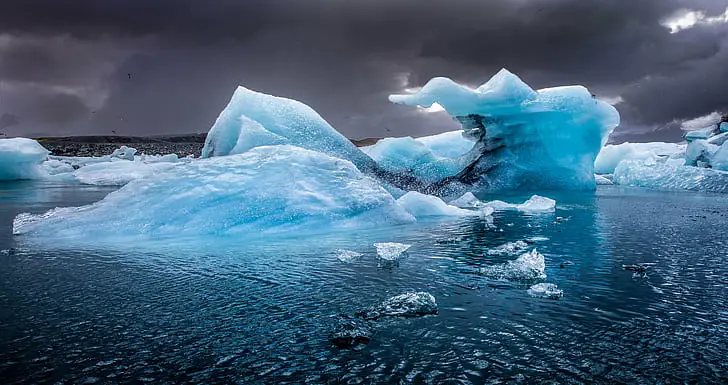
We are going to explore the pressing question, ‘Why Does Climate Change Matter?’ Uncover its causes, effects, and why it’s crucial for our future in this engaging read.
Ever found yourself wondering if climate change matters? Well, you’re not alone.
It’s a question that’s been on many minds lately and for good reason. Climate change isn’t just about hotter summers or melting ice caps.
It’s about our future, our health, and the world we’ll leave for the next generations.
So, let’s dive in and explore why climate change truly matters and why it deserves our attention now more than ever.
Introduction Why Does Climate Change Matter?
Welcome to our deep dive into the question, ‘Why Does Climate Change Matter?’
In this journey, we’ll be exploring the ins and outs of climate change, from its definition and causes to its far-reaching effects.
We’ll also delve into why it’s a topic of such importance, touching on its impact on our health, economy, and food security.
But we won’t stop there. We’ll also discuss how we can mitigate its effects and the role of international cooperation in this fight.
So, buckle up and get ready for an enlightening exploration of one of the most critical issues of our time.
A Brief Overview of Climate Change
Let’s start at the beginning, shall we? Climate change, in its simplest terms, refers to significant changes in global temperatures and weather patterns over time.
While climate change is a natural phenomenon, the speed at which it’s currently happening is far from natural.
Human activities, particularly the burning of fossil fuels like coal, oil, and gas, have dramatically accelerated the pace of climate change, leading to an increase in global temperatures, a phenomenon often referred to as global warming.
This rapid shift is causing a domino effect of changes in our environment, from melting ice caps to more frequent and severe weather events.
Importance of Understanding Climate Change
Now, you might be wondering, why does understanding climate change matter? Well, the answer is quite simple.
Climate change impacts every corner of our world and every aspect of our lives, from the air we breathe to the food we eat.
It’s not just about saving polar bears or preserving beautiful landscapes (although those are important too!).
It’s about protecting our health, our economy, and our future. By understanding climate change, we can better appreciate the urgency of the issue and take informed actions to mitigate its effects.
After all, knowledge is power, and in this case, it might just be the power to save our planet.
What is Climate Change?
Alright, now that we’ve set the stage, let’s delve a bit deeper into the heart of the matter.
What exactly is climate change? It’s a term we hear thrown around quite a bit, but what does it really mean?
And how does it tie into global warming? Let’s pull back the curtain on these concepts and get a clearer picture of what we’re dealing with.
So, grab your explorer’s hat, and let’s embark on this journey of discovery together!
Definition of Climate Change
Let’s start with the basics. Climate change, in its broadest sense, refers to long-term alterations in average weather patterns, both globally and regionally.
It’s not about short-term weather fluctuations or seasonal changes, but rather about shifts that occur over decades or longer.
These changes can include shifts in temperature, precipitation, wind patterns, and more.
While climate change is a natural part of Earth’s history, the term is most often used today to refer to changes driven by human activity, primarily the emission of greenhouse gases.
A Brief Explanation of Global Warming
Now, onto global warming. This term is often used interchangeably with climate change, but they’re not quite the same thing.
Global warming specifically refers to the ongoing rise in global average temperature near the Earth’s surface.
It’s caused largely by increased concentrations of greenhouse gases in the atmosphere, particularly carbon dioxide, which trap heat from the sun that would otherwise escape into space.
This warming is a major driver of the climate changes we’re seeing today, from melting ice caps to more intense heat waves.
But remember, global warming is just one aspect of climate change, which encompasses a range of shifts in our planet’s weather patterns.
Causes of Climate Change
Having understood what climate change is, it’s time to uncover the ‘why’ behind it.
What are the forces driving these significant shifts in our planet’s climate?
Well, the causes of climate change are both natural and man-made, and understanding them is key to tackling this global challenge.
So, let’s roll up our sleeves and delve into the causes of climate change, from the natural rhythms of the Earth to the impact of our own actions.
Natural Causes: Sun’s Energy, Earth’s Orbit, Volcanic Eruptions
First, let’s talk about the natural causes. Yes, climate change isn’t entirely a man-made phenomenon.
It’s part of Earth’s history and has been happening for millions of years due to factors like:
Sun’s Energy: The sun is the primary source of Earth’s heat, so any change in its output can affect our climate.
While the sun’s energy output has been pretty stable over human history, slight increases or decreases over long periods can influence Earth’s climate.
Earth’s Orbit: The Earth’s orbit around the sun isn’t a perfect circle, but an ellipse that changes shape every 100,000 years or so.
These changes, along with shifts in the tilt of the Earth’s axis, can cause significant shifts in climate over long periods.
Volcanic Eruptions: When a volcano erupts, it spews out large amounts of sulfur dioxide and other particles into the atmosphere.
These particles can reflect sunlight back into space, cooling the Earth’s surface. However, these effects are usually temporary and localized.
Human Causes: Burning of Fossil Fuels, Deforestation, Industrial Processes
While natural factors do play a role, the current rate of climate change is largely driven by human activities. Here’s how we’re contributing:
Burning of Fossil Fuels: This is the big one. When we burn fossil fuels like coal, oil, and gas for energy, we release large amounts of carbon dioxide into the atmosphere.
This gas traps heat from the sun, leading to a rise in global temperatures.
Deforestation: Trees absorb carbon dioxide, so when we cut them down, we not only lose a valuable tool in fighting climate change, but we also release the carbon they’ve stored back into the atmosphere.
Industrial Processes: Various industrial activities also contribute to greenhouse gas emissions.
For example, cement production releases a significant amount of carbon dioxide.
Similarly, certain chemical reactions necessary for industrial processes release greenhouse gases.
So, while climate change is a natural process, human activities have accelerated it to a pace that’s unprecedented in Earth’s history.
It’s this rapid change that’s cause for concern.
Effects of Climate Change
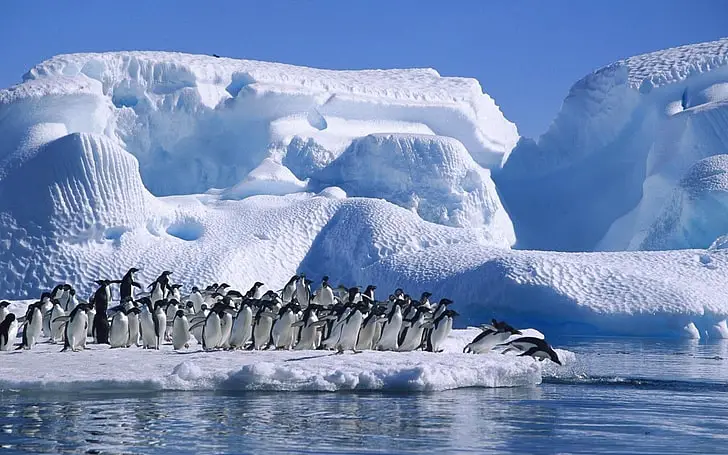
Now that we’ve explored the ‘what’ and ‘why’ of climate change, it’s time to delve into the ‘so what?’
What does climate change mean for us, for our planet, and for future generations?
The effects of climate change are far-reaching and multifaceted, impacting everything from our weather to our wildlife, our oceans to our economies.
So, let’s take a closer look at these impacts and understand why addressing climate change is not just an environmental issue, but a matter of global urgency.
Rising Temperatures
First on the list is rising temperatures. Global warming, driven by human-induced increases in greenhouse gases, is causing temperatures to rise around the world.
This isn’t just about hotter summers or milder winters.
Rising temperatures can disrupt ecosystems, affect agriculture and water supplies, and even pose health risks, particularly in regions that are not equipped to handle extreme heat.
Melting Ice Caps and Rising Sea Levels
Next up, we have the melting ice caps and rising sea levels. As temperatures rise, ice in the polar regions and high mountains is melting at an alarming rate.
This not only threatens species that rely on ice for their survival, but it also contributes to rising sea levels.
Higher sea levels can lead to more coastal flooding, and in some low-lying areas, entire communities could be submerged.
Increased Frequency of Extreme Weather Events
Climate change is also linked to an increase in extreme weather events.
We’re talking about more intense hurricanes, more frequent heatwaves, heavier rainfall and flooding, and even more severe droughts.
These events can have devastating effects, from loss of life and property to disruptions in food production and water supply.
Impact on Biodiversity and Ecosystems
Lastly, let’s talk about biodiversity and ecosystems. Climate change can disrupt the delicate balance of ecosystems, leading to shifts in species distributions and the timing of natural events like migrations and flowerings.
In some cases, species may not be able to adapt quickly enough, leading to local extinctions.
This loss of biodiversity can have ripple effects throughout ecosystems, affecting everything from wildlife populations to the services these ecosystems provide, like pollination and natural pest control.
Why Does Climate Change Matter?
As we’ve seen, climate change is a complex issue with far-reaching effects. But let’s bring it home now.
Why does climate change matter to you, to me, and to our neighbors down the street?
Why should we care about rising temperatures, melting ice caps, or the plight of a polar bear?
In this section, we’re going to explore the direct impacts of climate change on our lives and our societies.
From our health to our wallets, from our dinner plates to our political landscapes, let’s uncover why climate change is not just a scientific issue, but a deeply personal one as well.
Impact on Human Health
Climate change isn’t just an environmental issue. It’s a public health issue too.
Rising temperatures can lead to heat-related illnesses and deaths, particularly among vulnerable populations like the elderly.
Changes in weather patterns can also affect air quality, leading to respiratory problems like asthma.
Moreover, climate change can influence the spread of vector-borne diseases like malaria and dengue, as warmer temperatures allow disease-carrying insects to expand their range.
Economic Consequences
The economic consequences of climate change are also significant.
Extreme weather events like hurricanes, floods, and droughts can cause billions of dollars in damage, impacting everything from individual homes to national economies.
Changes in temperature and precipitation can also affect agriculture, potentially leading to higher food prices.
And let’s not forget the costs associated with adapting to climate change, from building sea walls to protect coastal cities to investing in new, more sustainable technologies.
Threat to Food Security
Speaking of food, climate change poses a serious threat to global food security.
Changes in temperature and rainfall patterns can affect crop yields, while extreme weather events can disrupt food supply chains.
Rising temperatures and acidification of the oceans can also impact fish stocks, a crucial source of protein for many communities.
In short, climate change could make it more difficult to feed the world’s growing population.
Social and Political Implications
Finally, climate change has important social and political implications. It can exacerbate social inequalities, as those with fewer resources are often hit hardest by the impacts of climate change.
It can also lead to political instability, as resource scarcity and climate-related disasters can trigger conflict and displacement.
On the flip side, addressing climate change can also be a catalyst for positive social and political change, driving innovation, creating jobs in green industries, and promoting social justice.
Mitigating Climate Change

By now, it’s clear that climate change is a formidable challenge with far-reaching impacts.
But it’s not all doom and gloom. There’s a lot we can do to mitigate climate change, reduce its severity and help us adapt to its effects.
In this section, we’ll explore some of the strategies for tackling climate change, from reducing greenhouse gas emissions to adapting to changes that are already happening.
So, let’s roll up our sleeves and explore how we can be part of the solution to this global challenge.
Reducing Greenhouse Gas Emissions
The first step in mitigating climate change is reducing greenhouse gas emissions. This can be achieved in a number of ways.
Switching to renewable energy sources like wind, solar, and hydroelectric power can significantly reduce emissions from the energy sector.
Improving energy efficiency in buildings, transportation, and industry can also make a big difference.
On an individual level, we can help by making sustainable choices, like driving less, reducing waste, and eating less meat, which is a major source of methane, a potent greenhouse gas.
Adapting to Changes Already Happening
While it’s crucial to reduce greenhouse gas emissions, we also need to adapt to the changes that are already happening.
This can involve building infrastructure to protect against sea-level rise, developing drought-resistant crops, or improving our disaster response systems.
Adaptation strategies will vary depending on local circumstances, but they’re an essential part of our response to climate change.
Role of International Cooperation
Finally, let’s talk about the role of international cooperation. Climate change is a global problem, and it requires a global solution.
No country can tackle climate change on its own. International agreements like the Paris Agreement are crucial for coordinating global efforts to reduce greenhouse gas emissions.
International cooperation can also help countries share knowledge and resources, support climate change adaptation in developing countries, and ensure that the transition to a sustainable economy is fair and equitable for all.
FAQs: Why Does Climate Change Matter?
Throughout our exploration of climate change, you’ve probably had a few questions pop up. And you’re not alone!
There are many common questions that people have about climate change, from the difference between climate change and global warming to the role of the sun in climate change.
In this section, we’ll tackle some of these frequently asked questions, providing clear, concise answers to help deepen your understanding of this complex issue.
So, let’s dive into the world of climate change FAQs!
Q: What’s the difference between climate change and global warming?
A: Global warming refers specifically to the long-term increase in Earth’s average temperature.
Climate change, on the other hand, encompasses not only rising global temperatures but also other changes in climate, such as shifts in rainfall patterns, severe weather events, and sea-level rise.
Q: What’s the difference between weather and climate?
A: Weather refers to short-term atmospheric conditions, like what you see outside your window right now.
Climate, on the other hand, is about long-term patterns of weather in a specific region or the planet as a whole.
Q: Is it too late to prevent climate change?
A: Some changes are already happening, and we need to adapt to them. However, it’s not too late to prevent the worst impacts of climate change.
By reducing greenhouse gas emissions and transitioning to more sustainable practices, we can limit further climate change.
Q: Do scientists agree on climate change?
A: Yes, there is a strong consensus among scientists that climate change is happening and is primarily caused by human activities.
This consensus is based on a wide body of evidence from multiple scientific disciplines.
Q: What kinds of data do scientists use to study climate?
A: Scientists use a variety of data to study climate, including temperature records, ice core samples, tree rings, and satellite measurements.
These data can provide information about past and present climate conditions, helping scientists understand how climate is changing.
Q: What is the greenhouse effect?
A: The greenhouse effect is a natural process where certain gases in Earth’s atmosphere trap heat from the sun, preventing it from escaping back into space and thereby warming the planet.
Without the greenhouse effect, Earth would be much colder. However, human activities are increasing the concentration of these gases, enhancing the greenhouse effect and causing Earth to warm.
Q: Has Earth continued to warm since 1998?
A: Yes, the long-term trend shows that Earth has continued to warm since 1998. While there are year-to-year fluctuations due to natural variability, the overall trend is upward.
Q: Are the land-based ice sheets in Greenland and Antarctica continuing to lose mass (ice)?
A: Yes, measurements show that the ice sheets in Greenland and Antarctica are losing mass. This loss of ice contributes to sea-level rise.
Q: Is the Sun causing global warming?
A: Changes in the sun’s energy output can influence Earth’s climate, but multiple lines of evidence show that the current warming trend is primarily due to human activities, not changes in the sun.
Q: What do volcanoes have to do with climate change?
A: Volcanic eruptions can influence climate by spewing particles and gases into the atmosphere that can reflect sunlight back into space and cause temporary cooling.
However, this effect is short-lived and small compared to the warming caused by human activities.
Q: How do we know what greenhouse gas and temperature levels were in the distant past?
A: Scientists use a variety of methods to study past climates or paleoclimates.
For example, they can analyze ice cores, which contain trapped air bubbles that provide a snapshot of the atmosphere at the time the ice formed.
These and other methods can provide valuable information about past levels of greenhouse gases and temperatures.
Why Does Climate Change Matter? Final Thoughts
As we wrap up our deep dive into climate change, it’s time to reflect on what we’ve learned and consider our next steps.
Climate change is a complex, global issue, but it’s also deeply personal, affecting our health, our economies, and our future.
In this conclusion, we’ll recap the key points and highlight the actions we can take to make a difference.
So, let’s take a moment to look back, look forward, and consider our role in this global challenge.
Recap of the Importance of Addressing Climate Change
We’ve journeyed through the ins and outs of climate change, understanding its causes, effects, and why it matters so much.
We’ve seen how it’s not just about polar bears or distant future generations, but about us, here and now.
Climate change affects our health, our economies, our food security, and much more.
It’s a global issue that requires immediate attention and action. Addressing climate change is not just about saving the planet.
It’s about safeguarding our future and the future of generations to come.
A Call to Action
Now that we understand the gravity of the situation, it’s time to act. Each one of us has a role to play in mitigating climate change.
Whether it’s reducing our carbon footprint, advocating for policies that protect the environment, or educating others about climate change, every action counts.
Remember, change starts with you. So, let’s take what we’ve learned and use it to make a difference.
Let’s be the change we wish to see in the world. Together, we can tackle climate change and create a sustainable future for all.

